Difference between revisions of "Webinar Series: Sustainable Energy in Humanitarian Settings"
***** (***** | *****) |
***** (***** | *****) |
||
| Line 26: | Line 26: | ||
* [[Webinar on Sustainable Energy for Household Cooking Needs in Humanitarian Settings]] | * [[Webinar on Sustainable Energy for Household Cooking Needs in Humanitarian Settings]] | ||
* [[Webinar on Sustainable Energy for Powering Household and Community Lighting Needs in Humanitarian Settings]] | * [[Webinar on Sustainable Energy for Powering Household and Community Lighting Needs in Humanitarian Settings]] | ||
| + | * [[Webinar on Sustainable Energy for Essential Humanitarian Services : Outline of Energy Solutions and a Case Study on Solar Pumping]] | ||
* | * | ||
| Line 53: | Line 54: | ||
| − | |||
| − | |||
| − | |||
| − | |||
| − | |||
| − | |||
| − | |||
| − | |||
| − | |||
| − | |||
| − | |||
| − | |||
| − | |||
| − | |||
| − | |||
| − | |||
| − | |||
| − | |||
| − | |||
| − | |||
| − | |||
| − | |||
| − | |||
| − | |||
| − | |||
| − | |||
| − | |||
| − | |||
| − | |||
| − | |||
| − | |||
| − | |||
| − | |||
| − | |||
| − | |||
| − | |||
| − | |||
| − | |||
| − | |||
| − | |||
| − | |||
| − | |||
| − | |||
| − | |||
| − | |||
| − | |||
=June 2019= | =June 2019= | ||
| Line 203: | Line 158: | ||
'''Renewable Energy Transition''' | '''Renewable Energy Transition''' | ||
| − | * McKinsey (2019): [https://mck.co/2IcVJIW Energy Perspective 2019: Reference Case] | + | *McKinsey (2019): [https://mck.co/2IcVJIW Energy Perspective 2019: Reference Case] |
| − | * World Economic Forum (2019): [https://www.weforum.org/reports/fostering-effective-energy-transition-2019 Fostering Effective Energy Transition 2019] | + | *World Economic Forum (2019): [https://www.weforum.org/reports/fostering-effective-energy-transition-2019 Fostering Effective Energy Transition 2019] |
* World Economic Forum Website: [https://www.weforum.org/system-initiatives/shaping-the-future-of-energy Shaping the Future of Energy] | * World Economic Forum Website: [https://www.weforum.org/system-initiatives/shaping-the-future-of-energy Shaping the Future of Energy] | ||
Revision as of 09:24, 14 September 2021
|
Webinar Series: Sustainable Energy in Humanitarian Settings - Knowledge and Solutions from and for the Field - |
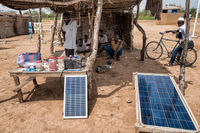
Today, over 130 million people are in need of humanitarian assistance due to conflict, natural disasters, and other complex global challenges. For many of these people, access to energy sources is critical for survival, and how they access it impacts their health, livelihoods, safety, and well-being.
Energy access for displaced people is not prioritized in the global humanitarian system. Current energy practices in situations of displacement are often inefficient, polluting, unsafe for users, and harmful to the surrounding environment. Moreover, institutional humanitarian operations such as water pumping, community lighting, and health clinics rely heavily on unsustainable fossil fuels, costing hundreds of millions of dollars annually. Given the complex nature of humanitarian response and the challenges of integrating sustainable energy solutions into the humanitarian program cycle, there is not just one solution but a need for systemic actions to mobilise resources, build capacity and use the opportunity for sustainable energy solutions to enhance impact in sectors such as health, protection, food security, and WASH. read more
Against this background, key actors involved in displacement settings developed in 2018 the Global Plan of Action for Sustainable Energy Solutions in Situations of Displacement (GPA). It’s mission is to equip stakeholders with the capacity to mainstream sustainable energy solutions into programming, with the goal of delivering improved protection, dignity, and energy-related social, environmental, and economic benefits to displaced people.
As part of the outreach and capacity building activities of this movement, the International Committee of the Red Cross (ICRC) together with the Steering Group of the GPA and other partners are conducting a series of webinars on humanitarian energy issues to raise awareness and spread knowledge about different technologies, best practices and impacts.
List of past Webinars
- Webinar on Landscaping : Capacity Building and Knowledge Sharing Opportunities
- Webinar on Productive Uses of Energy in Humanitarian Contexts
- Webinar on Powering Possibilities : Lessons Learned from Mini-grid Application in Conflict and Fragile Contexts
- Webinar on Powering WASH : Renewable Energy for Water Supply in Humanitarian Settings
- Webinar on Powering Humanitarian Health Operations : Sustainable Energy Solutions
- Webinar on Energy Efficiency and Designing for Sustainability in Humanitarian Response
- Webinar on Powering Humanitarian Facilities : Dialogue on Implementation Models
- Webinar on Sustainable Energy for Household Cooking Needs in Humanitarian Settings
- Webinar on Sustainable Energy for Powering Household and Community Lighting Needs in Humanitarian Settings
- Webinar on Sustainable Energy for Essential Humanitarian Services : Outline of Energy Solutions and a Case Study on Solar Pumping
June 2019
State of Play: Sustainable Energy in Humanitarian Settings
Webinar Recording
Presentation
Speakers
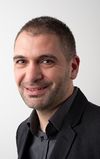 |
Marco Albertini, International Committee of the Red Cross (ICRC)
With a background in Environmental Engineering and Business Administration, Marco has 15 years of international experience in team coordination and project management in the fields of water and power supply and rehabilitation of infrastructures for essential services. | |
| Raffaella Bellanca, World Food Programme
Raffaella, Energy for Food Security coordinator at WFP, is an Access to Energy specialist focused on energy delivery models and the development of sustainable value chains that meet households, institutional, commercial and humanitarian needs for cooking, lighting, cooling and productive uses. | ||
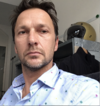 |
Francois Delfosse, Doctors Without Borders / Médecins Sans Frontières (MSF)
Holding a Master Degree in Geopolitics and a diploma of humanitarian applied logistic, François Delfosse has been working in the humanitarian sector for the past 21 years, including more than 11 years in the field. Currently Project manager, is developing a comprehensive and transversal Environmental Roadmap for MSF Operational Center Geneva, aiming at promoting and implementing environmental best practices, encompassing OCG environmental footprint and setting the frame to better understand the impact of climate change on populations’ needs and therefore reflect on our operational approach. | |
 |
Florent Eveillé, Food and Agriculture Organization of the United Nations (FAO)
Florent Eveillé coordinates the Safe Access to Fuel and Energy approach within and outside of FAO. Before ensuring this role, he worked for the FAO Office in West Bank & Gaza Strip. With a background in Natural Resources Management and Economics, Florent has covered different roles in the field of resilience, nature conservation, renewable energy and waste management in Central African Republic, France, Jordan, Lebanon and at EU level. | |
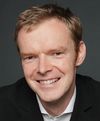 |
Thomas Fohgrub, United Nations Institute for Training and Research (UNITAR)
Thomas is the head of the Coordination Unit for the Global Plan of Action for Sustainable Energy Solutions in Situations of Displacement, which is hosted at the United Nations Institute for Training and Research and is steered by 13 key organizations from humanitarian aid and development assistance. He is working within UNITAR at this topic since two years. Before that, Thomas was for more than 4 years the focal point for trade and development, economic cooperation and sustainable energy at the German Mission to the UN in Geneva and served in other capacities for the German Ministries of Energy and Social Affairs before. He holds an MA in European Studies and a PhD in Management Consulting. | |
 |
Sergio Gelli, International Committee of the Red Cross (ICRC)
Sergio Gelli works for the International Committee of the Red Cross- ICRC, as the Energy Initiatives Senior Advisor to the Board of Directors. | |
| Owen Grafham, Chatham House
Owen Grafham joined Chatham House in May 2014. During his time in the Energy, Environment and Resources department, he has managed Chatham House's research and outreach on energy for displaced populations and the institute's work on energy-use inside the humanitarian system. | ||

|
Eva Mach, International Organization for Migration (IOM)
Eva Mach works as Environmental Sustainability Programme Officer at the Headquarters of the International Organization for Migration – the UN Migration Agency (IOM). In this capacity, she manages IOM’s institutional Environmental Sustainability Programme which aims to connect environmental sustainability principles and practices with migration governance and management with a special focus on the clean energy transition and environmental management systems. She also contributes to IOM’s global policy work on water and energy related topics. | |
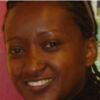 |
Madeleine Marara, Office of the United Nations High Commissioner for Refugees (UNHCR)
Madeleine Marara, who has more than 10 years of mix-experience in the humanitarian, development and academic sectors, currently works at the Headquarters of the UN Refugee Agency (UNHCR), as an associate project officer, within the Energy and Environment Unit. Prior to joining UNHCR headquarters, she has worked in the field with UNHCR Rwanda Operation, where she developed the country SAFE (Safe Access to fuel and Energy) Strategy and managed its implementation. Her other work experience include work in the development sector, mainly in WASH, Environment and sustainable energy solutions in remote areas. Miss. Marara holds a BSc. Degree in civil engineering from KIST, Kigali - Rwanda and a MSc. degree In Environmental Sciences from IHE, Delft-The Netherlands. |
<headertabs></headertabs>
Further Resources on Humanitarian Energy
Find here some useful resources for further information:
Available resources on energypedia
Global Plan of Action
- Global Plan of Action - Framework for Action
- Global Plan of Action - Unitar website
- Identification And Analysis Of Standard Clauses Of PPA And Leasing Agreements For Energy Provision In The Humanitarian Sector
- Feasibility and Applicability of a Global Guarantee Mechanism in Humanitarian Energy Contracts
- SAFE Workshop 2019 - Final Report
- Humanitarian Energy Conference 2019 - Final Report
- Renewable Electrification of Refugee Camps – Phase 1
Mercy Corps
Moving Energy Initiative
- The Costs of Fuelling Humanitarian Aid (2018)
- The Solar Energy Handbook - A guide to institutional solar for organizations working in humanitarian settings
- Private-Sector Engagement - The Key to Efficient, Effective Energy Access for Refugees. Toolkit (2016)
- Heat, Light and Power for Refugees Saving Lives, Reducing Costs (2015)
- Prices, Products and Priorities - Meeting Refugees’ Energy Needs in Burkina Faso and Kenya (2018)
Renewable Energy Transition
- McKinsey (2019): Energy Perspective 2019: Reference Case
- World Economic Forum (2019): Fostering Effective Energy Transition 2019
- World Economic Forum Website: Shaping the Future of Energy
Grantham Instittute
Blog Articles
- Rachel Kyte: https://www.seforall.org/news/on-world-humanitarian-day-its-time-we-finally-talk-about-energy-access
- Vijay Bhopal and Sandy Robinson: Is Sustainable Attainable?
Organizers






















